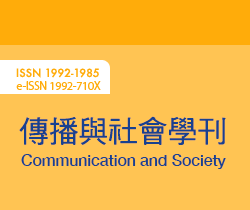 |
| July 2007 |
 |
3 |
|
| 專輯 |
| 傳媒教育、公共空間與公民批判能力:香港傳媒教育的理想與實踐 |
| Media Education, Critical Citizenship and Public Sphere: The Ideal and Practice of Media Education in Hong Kong |
|
|
|
 |
 (2754)
(2754)
|
| 作者 |
李月蓮 |
| Author |
Alice Y. L. LEE |
| 關鍵詞 |
傳媒教育、公共空間、具批判能力的公民、社會參與模式 |
| Keywords |
media education, public sphere, critical citizenship, social participatory model |
| 摘要 |
香港傳媒教育在1997年之後迅速發展,主要是受到回歸后傳媒環境惡化及公共空間破損的刺激。傳媒教育倡議者建議,採納「社會參與模式」來推動傳媒教育運動,培養具批判能力的公民,改善傳媒環境。這篇文章探討傳媒教育、具批判能力的公民和公共空間之間的關係,審視「社會參與模式」的實踐情況。研究發現,香港傳媒教育在訓練具有批判能力的公民方面取得認同。但由於「非政治化」的教育環境,另傳媒教育的課程變得非政治化,所以在鼓勵社會參與方面,只局限於社會文化領域,不涉及政治範疇,故此未能全面協助振興公共空間。 |
| Abstract |
Media education in Hong Kong was only launched after 1997. Its rapid growth was largely due to the worsening of the media environment and deteriorating of the public sphere after the handover. Media educationists propose to adopt the “social participatory model” to promote media education, to nurture
citizens’ critical thinking ability, to improve the media environment, and to boost the public sphere. This article discusses the relationship among media education, public sphere and critical citizenship. It also examines the actual practice of the “social participatory model.” Findings show that media education in Hong Kong is successful in training citizens’ critical mindedness. But due to the apolitical
nature of Hong Kong’s education environment, media education curriculum tends to be apolitical as well. As a result, media education can only limit its scope in the socio-cultural arena in terms of promoting social participation. The political aspect is often neglected. This is why media education cannot promote the public sphere in Hong Kong to the fullest extent.
|
|
|
 |
| No.74 2025 October |
 |
| No.73 2025 July |
 |
| No.72 2025 April |
 |
| No.71 2025 January |
 |
| No.70 2024 October |
|
